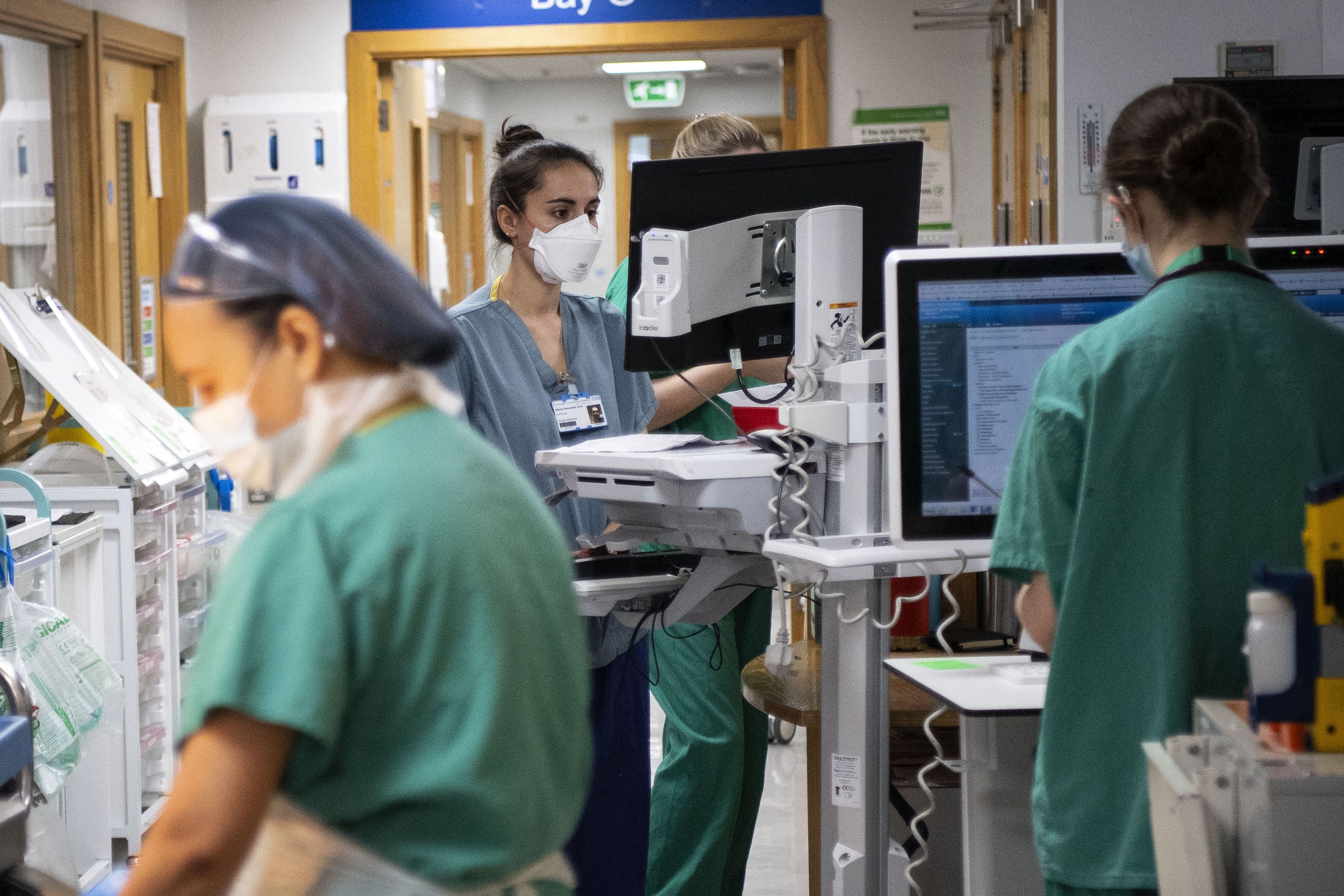Government to hold Cobra meetings as country faces wave of strikes
There are plans for military staff and civil servants to cover for striking Border Force staff at airports and ports.

Your support helps us to tell the story
From reproductive rights to climate change to Big Tech, The Independent is on the ground when the story is developing. Whether it's investigating the financials of Elon Musk's pro-Trump PAC or producing our latest documentary, 'The A Word', which shines a light on the American women fighting for reproductive rights, we know how important it is to parse out the facts from the messaging.
At such a critical moment in US history, we need reporters on the ground. Your donation allows us to keep sending journalists to speak to both sides of the story.
The Independent is trusted by Americans across the entire political spectrum. And unlike many other quality news outlets, we choose not to lock Americans out of our reporting and analysis with paywalls. We believe quality journalism should be available to everyone, paid for by those who can afford it.
Your support makes all the difference.Plans for military staff and civil servants to cover for striking Border Force staff at airports and ports are among the contingency measures set to be discussed at a Cobra meeting on Monday.
The Government confirmed that military personnel and civil servants are being trained to help step in, as the country faces an intensifying wave of planned strikes over conditions and pay this month from nurses, paramedics and rail workers to Border Force officials.
Staff at Gatwick, Heathrow, Manchester, Birmingham and Cardiff airports will strike for eight days from December 23 to New Year’s Eve.
The Government said that members of the armed forces will also be deployed to hospital trusts across the country in order to familiarise themselves with vehicles ahead of an ambulance strike scheduled for December 21.
Some members are already being trained up as part of contingency planning by Border Force officials, as the Government aims to avoid widespread travel disruption at Christmas.
Chancellor of the Duchy of Lancaster Oliver Dowden will on Monday lead the first of two Cobra (civil contingencies committee) meetings next week which will be attended by transport, health, home office and defence ministers.
Another meeting is scheduled to take place on Wednesday.
Mr Dowden said called on unions to call off the “damaging” strikes.
“The stance the unions have taken will cause disruption for millions of hardworking people over the coming weeks.
“The Government will do all it can to mitigate the impact of this action, but the only way to stop the disruption completely is for union bosses to get back round the table and call off these damaging strikes.
“Although departments are responsible for plans in individual sectors, it is right that the Cabinet Office coordinates a cross-Government response.
“I will be chairing a series of Cobra meetings over the coming weeks to ensure our plans are as robust as possible, and that disruption is kept to a minimum.”
Royal College of Nursing members are due to take part in unprecedented strike action on December 15 and December 20, with tens of thousands of nursing staff expected to take industrial action.
With a series of rail strikes also planned between now and early January, the Government has said it was working with Network Rail and freight companies to prevent delays and to ensure coal, steel and waste are prioritised.
A Royal College of Nursing spokesperson said: “The urgent meeting that the Government would really benefit from convening is with us. Negotiate now and pause these strikes.”
Unison’s head of health Sara Gorton echoed that message.
“The wage rise given to health workers this year simply hasn’t been enough to stop staff leaving in droves. Without enough employees in the NHS, patients will go on waiting too long for ambulances and for treatment to start,” she said.
“Instead of putting plans in place for the strike days, ministers should be concentrating all their efforts on ending the disputes.”